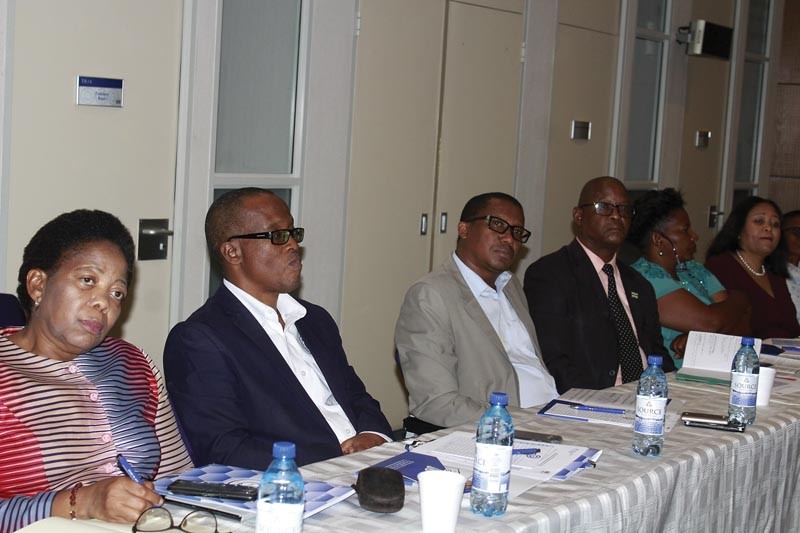BOBS hosts stakeholders' training workshop
Correspondent | Friday November 22, 2019 14:35


The CSN is a voluntary network of standard organisations and other stakeholders from 53 countries home to 2.4bn people which is 31% of the global population. Launched in April last year by the BSI, the UK National Standards Body, in partnership with the Department for International Trade and Department for International Development.
The network aims to tackle non-tariff barriers and promote strong trade amongst all Commonwealth states through the participation, adoption and implementation of international standards.Presenting at the workshop, Sahar Danesh, BSI Government Engagement Manager, said the CSN which is the biggest standards network is run by members and it aims to bring commonwealth countries together for collaboration, expansion of network and make the most of International Standards Organisation (ISO)
Further to that, members get the opportunity to know what others are doing and learn from each other to enhance the standards. “The network’s portal provides most interesting forums to give opportunity to those looking for experience and guidance to learn from their peers,” she said
Sharing some of the advantages of CSN she revealed that Intra Commonwealth trade and productive investment are on track to exceed US$1 trillion by 2020 while investment generates 3.3 times more jobs than non-commonwealth countries. On average, she stated that trade is around 20% more and generates 10% more intra-investment than others with 19% less bilateral costs to trading partners.
Also representing BSI at the workshop was Shyam Kumar Gujadhur who gave the background to and benefits of standards. He said standards, which are tools of convenience for those who wish to use them are market led solutions that capture current good practice and encourage its use throughout the economy.
“They are of themselves generally voluntary, in that there is no obligation to apply them or comply with them but in a few cases their use can be made mandatory by regulatory instruments,” he stated. Furthermore Gujadhur said standards help organisations meet World Trade Organisation obligations to reduce trade barriers, promote innovation and productivity as well as facilitate trade, enhance consumer protection and confidence while also supporting public policy objectives and where appropriate offer effective alternatives to regulation.
BOBS Engineering Standards Manager, Obonye Lopang discussed the Botswana situation and key lessons from the use of standards. Lopang said standards are developed by technical committees made up of representatives from the public and private sector as well as consumers, and experts. Membership to the 52 member voluntary committee is strictly by invitation
Regarding the guiding principles for development of standards he said the standards have to be relevant, protect consumers and the environment while supporting government initiatives and promoting trade rather than stifling it. Lopang said out of the 1828 standards developed since BOBS started operation on 83(5%) have been declared compulsory because they protect consumer health, safety and the environment.
The use of standards by local entities, however, is low at only 37% due to limited testing capability in industry and limited access due to availability and cited high cost of attaining standards. Other constraints to use of standards are limited awareness and recognition of local standards by some entities who prefer foreign standards, the fact that they are not mandatory as well as lack of training on requirements and application of standards. To fight the low uptake of standards, Lopang revealed that BOBS had decentralised the sale of standards with establishment of sales points in Serowe, Maun, Gaborone and Francistown.
They have further started creating awareness to procurement entities with over 40 seminars already held as well as over 30 other seminars for regulators. They have also used media such as TV and radio to promote standards according to Lopang. The half day training workshop also discussed trade environment regulations, case studies and stakeholder outreach matters. Closing the workshop, BOBS Director of Standards, Keolebogile Segomelo called on the participants to share what they learned with their respective organisation. She revealed that the United Kingdom Government had invested over BWP25m for the network and urged them to take advantage.
